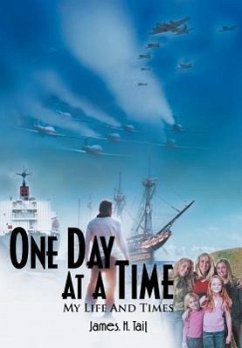Jim Rickett was a family doctor in 1940. He was called up in 1943 and was working in Italy in early 1944 when he received an urgent posting to join the commandos. They were working with the SOE (Special Operations Executive) on the island of Vis. Occupation of the island gave control of the Adriatic and Hitler's European supply lines. His job was to set up a hospital to deal with the wounded who would be brought back from raids on the nearby islands under enemy occupation. He had to get out there immediately and was told the supplies from Italy would be very difficult. There were no evacuation facilities. A German attack was imminent. The island was to be held at all costs. At the outset he had nothing. He had to set up a makeshift hospital from scratch. Initially he had to operate with a kerosene lamp for light. Later they managed to get wiring from a crashed Liberator plane and set up electricity using an old diesel generator. They bartered and stole to get the unit operational. A hospital clinic on the German occupied mainland was raided to acquire an X-ray machine. When a heavy influx of casualties was expected from a commando raid, Jim Rickett wired to Italy for two hundred stretchers. The unhelpful reply came back "Stretchers not - repeat not - available. To what use would they be put?" Despite the setback, they managed to get a hospital facility running and operational by working continuously for days on end. The small unit became highly effective, provided some light-hearted moments, and became the social centre of the island. What was family doctoring like prior to the NHS? Told as a first-hand account Jim Rickett's diary builds a cameo picture of the community under the stress of the 1940/41 blitz. His GP practice was near Portsmouth which was heavily bombed. He was a surgeon (with no formal surgical training) and carried out routine surgery in the local hospital. Much of it is now unthinkable. A caesarean operation had to be done on the dining-room table. The story tells vividly of the severe bombing at the time of the "Fire Blitz" on Portsmouth in January and in April 1941. This was one of the most severe raids of the blitz.
Hinweis: Dieser Artikel kann nur an eine deutsche Lieferadresse ausgeliefert werden.
Hinweis: Dieser Artikel kann nur an eine deutsche Lieferadresse ausgeliefert werden.








